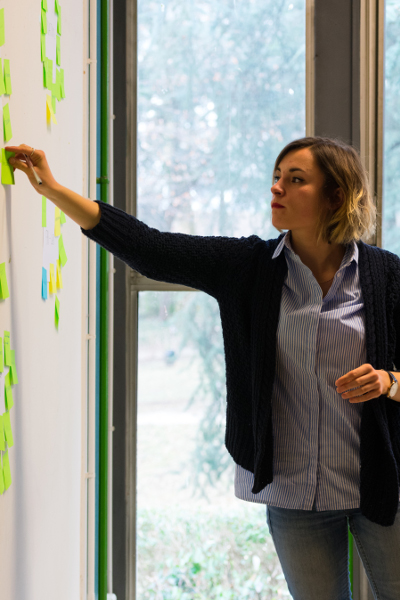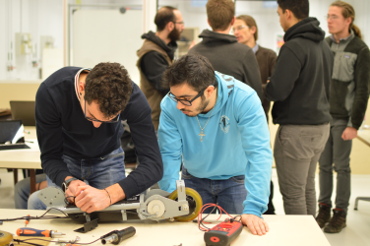Dynamo Days, a social hackathon
I co-found Dynamo Days, a hackathon which was held last February in a Engineering School, Mines Saint-Etienne, for the second year, gathering 450 people (mainly students), and focused on projects with environmental and social impacts. As the future graduates are wondering more and more about how to find meaning in their upcoming career, and when it’s announced that 60% of the jobs of tomorrow do not exist yet, Dynamo Days tries to bring/PROVIDE concrete keys to the students to guide their choices. This report is from my point of view, that of one the curator’s of this maker-oriented event.

Last November, a call for projects was launched to invite associations, companies and institutions, to propose challenges with a particular focus on the topic of Autonomy in different forms (energy, food, disability, etc.). We asked for outside help to organize this event. People like Romain Chanut, the co-founder of Jerry Do-It-Together (open community for digital empowerment), or Isabelle Huynh, a mechanical engineer exploring Positive Engineering, were involved in the organization. Isabelle made an amazing keynote at the opening of the event, explaining what Positive Engineering is : ways to design a product with a social and environmental positive impact. Her activism through La Clavette is inspiring, she has met several worlwide entrepreneurs and engineers involved in social and technological innovation. It seemed important for us to make Dynamo Days resonate with existing initiatives that encourage changes in the technological ecosystem.
We received some pretty incredible challenges, from building a plastic recycling machine for the Plastic Odyssey Catamaran, to designing technical devices for people with disabilities. We also had some projects proposed by students themselves, or by third parties or FabLab like La MYNE, dedicated on Open Source and promoting citizen innovation in Lyon! Educational changes involve social innovation, engineering schools have to work with third parties and citizen groups.
Yet, organizing an event like this, is not an easy job : when we talk about educational transition, cultural change, it’s not necessarily obvious for everyone (students and permanent staff) to immediately join in this type of activities. But, the “Learning by doing” and “Maker” approach and the purpose of the projects, the fact that they are not fake but for real people’s needs make this event interesting for the students. TheY were engaged in useful projects for the world of tomorrow, and that makes the difference!
